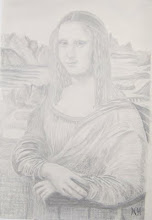Tuesday, 4 February 2014
This video places hyperbolic geometry within a process that forms the ever changing world
of our everyday life. This corresponds to Einstein’s Relativity in which the Euclidean
geometry of our everyday life is only an approximation to hyperbolic geometry.
Therefore
hyperbolic geometry that in many ways is more beautiful than Euclidean geometry
is also more fundamental in the nature of space and time.
Because hyperbolic
geometry has negative curvature with every point in hyperbolic space being a
saddle point, we are going to need a dynamic process that naturally forms
negative curvature in three dimensional space. This can be formed by a very
simple process of spherical symmetry forming and breaking. In the images in the video from
the International Space Station we can see a candle flame in almost zero
gravity takes on the form of a sphere. Light radiates out in all directions
forming a sphere that is interacting with the atmosphere on the two dimensional
surface of the sphere. The outer surface of the sphere has positive curvature,
but relative to the radiating light of the candle flame the inner surface has
the negative curvature that is needed for hyperbolic geometry. This forms a
dynamic process in three dimensional space instead of a boundary circle we have
a boundary sphere. The infinite nature of hyperbolic geometry can be
represented on the negative curvature of the interior surface of the light sphere.
In this way we have the three dimensions of our everyday life with Euclidian
geometry within three dimensional space formed by one dynamic process that is
based on hyperbolic geometry.
The spontaneous absorption and emission of light
forms a process of continuous energy exchange or what I like to call continuous
creation. This will be relative to the flow of electric charge with the future
coming into existence light photon by light photon with each new photon
electron coupling or dipole moment.
The negative curvature of
Hyperbolic Geometry represents the curvature of spacetime that forms gravity.
Subscribe to:
Post Comments (Atom)










No comments:
Post a Comment